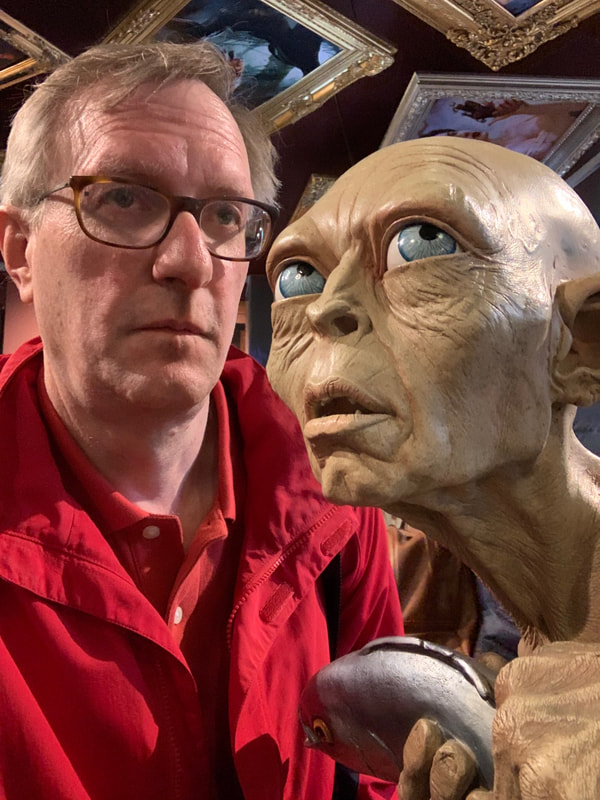|
Below are links to syllabi for courses I have taught at the University of Rochester, with longer descriptions of courses I am continuing to teach:
PHL 107/BIO 107: Ethics and Science of Stem Cells PHL 109: Justice and Equality PHiL 221: Philosophical Foundations of the American Revolution. Particularly in n an election year, we should think carefully about the meaning and justification of the American Republic. In this course, we will study the founding of the United States by examining the political theory which sparked the revolution itself and which lay behind the writing of the Constitution. We will look at some of the key works that were read by the Founders, particularly the works of John Locke, the Baron de Montesquieu, and David Hume. But we will also look at important works that from the period surrounding the revolution and the writing of the Constitution, like those by Thomas Paine, Thomas Jefferson, James Madison, and Alexander Hamilton, and we also look at writers that were sometimes ignored at the time, like those from Black authors and women. The eighteenth century was a time of remarkable intellectual activity in the West, and the Americans played a central role in it, both reflecting the thought in Europe and influencing the course of thoughts and events there. Although it was over 200 years ago, the eighteenth century was a modern period: their concerns are largely our concerns. But since they come from a different background, they approach these concerns in a different and (I hope) illuminating way. So we want to examine these ideas in their context, but we also want to see what these thinkers can tell us about the role and nature of government and of society. PHL 223: Social and Political Philosophy PHL 225: Ethical Decisions in Medicine PHIL 228: Public Health Ethics. Most health care ethics focuses on the individual decisions about treatments, but many ethical questions have implications for society at large. The demands that individual health decisions make on the system may create collective problems, and conversely, the needs of society may limit the freedoms that individuals think they should have. Public health ethics then, lie at the intersection of medicine, political philosophy, and public policy. This course will examine the values of health, social needs, and freedom through a systematic examination of situations in which these conflicts arise. We will examine the issues by looking at it through three levels: through theoretical readings in philosophy, through readings in the broad issues of public health, and by considering case studies. Taught as PHILOS 515 at the University of Wisconsin. PHILOS 241. Introduction to Ethics. An introduction to basics of moral theory, focusing on John Stuart Mill's utilitarianism, Immanuel Kant's deontology and Aristotle's virtue theory, using plays as moral case studies, as taught while a visitor at the University of Wisconsin. PHLT 300/PHIL 311: Seminar in Bioephlt_300. The Seminar in Bioethics is intended as a capstone experience for bioethics majors, but it is open to anyone who has taken PHIL 225 or 228 or with permission of the instructor. In a discussion-based seminar format, we will examine the foundations of bioethics and then we will look at book-length treatments of several important issues, chosen by the participants as whole among topics like health care justice, global health justice, stem cell research, transplantation ethics, enhancement technologies, and issues in end-of-life care. PHLT 300/PHIL 311 Pandemic Ethics (Spring 2021). This course focuses on the whole spectrum of ethical issues that arise in epidemics, with--for obvious reasons--a focus on the coronavirus pandemic. We will look at every stage of the pandemic: from disease surveillance and contract tracing to resource allocation to quarantine and lockdowns to vaccine development and distribution. We will also put these questions in context by looking not only at the appropriate responses to Covid-19, but also to other epidemics that have arisen in history. PHL 312: Neuroethics. Advances in neuroscience allow us to understand the brain and its functions more completely now than ever before. From these findings, new medical techniques and technologies are being developed that will allow us to peer into the working of others’ minds and to alter our cognitive functions, our memory, and our moods, raising fundamental questions about free will, about the basis for our identity as persons, and about morality itself. For these reasons, neuroscience may pose a deeper set of moral issues than any other science and this course will seek to explore the ethical issues that it raises. PHIL 321 Death. Death poses a number of philosophical puzzles: What does it mean to die? Am I harmed when I die? I don’t experience my death or being dead, so why would it be bad for me? Is it appropriate, then, to fear my death? Is it wrong to kill myself? Can I be harmed after I die? If dying is bad, would it be better if I never died, if I lived forever? Does the fact of that we will die change the way we should live? Does death shape the meaning of our lives? PHL 324: Rousseau to Revolution PHL 587: Liberalism and its Critics Medical Humanities Seminar: Doctors' Dilemmas. Literature provides rich contexts in which to think about moral issues that go far beyond the sketchy scenarios that we often use to think about ethical values and principles. In this course, then, we will use plays, short stories, and novels to look more deeply at some important ethical issues related to medicine. Medical Humanities Seminar: Bioethics at the Movies. Movies often provide a rich context in which to think about moral issues that go far beyond the sketchy scenarios that are often used to think about ethical values and principles in both philosophy and medicine. In this course, we will use movies to look more deeply at some important ethical issues related to medicine. |






